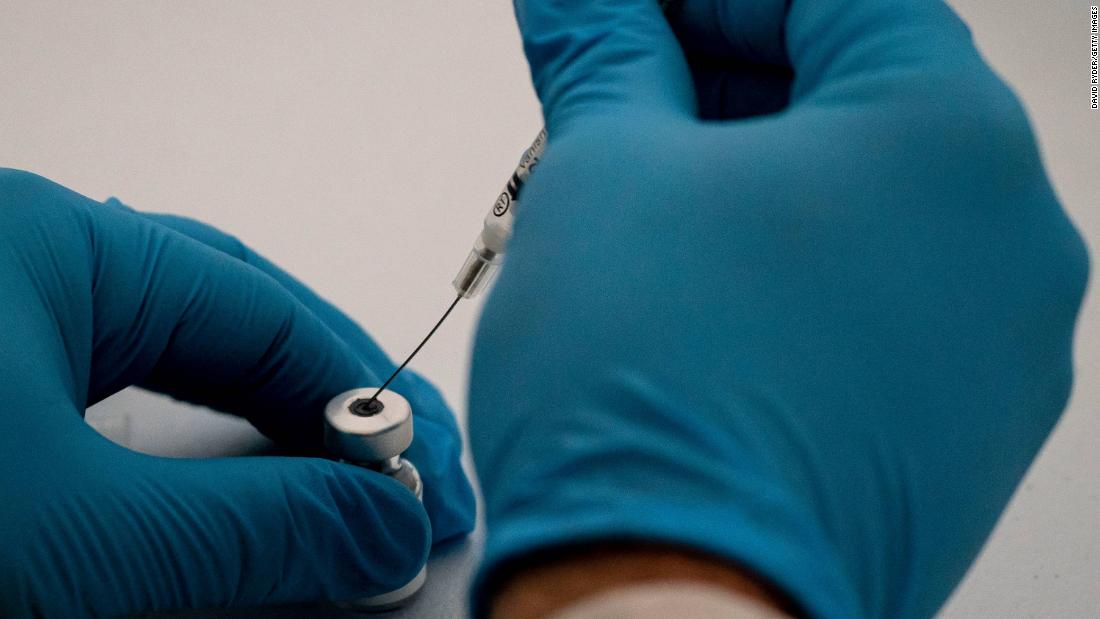The vaccine’s launch in the United States had a slow start, but the federal long-term care partnership has been the target of specific criticism for its slow pace.
“The states are frustrated,” said Claire Hannan, executive director of the Association of Immunization Managers.
Hannan pointed to slower-than-expected absorption among members of the long-term care team and an overestimation of the number of doses needed. Retail pharmacists were not familiar with working with this population – for example, requiring the consent of people who may be unable to consent for themselves.
“This shouldn’t be the ‘Hunger Games’ as it was with the PPE, right. That was ridiculous and we all had to play that game,” Utah Governor Spencer Cox told a news conference last month.
“This partnership between Walgreens and CVS with the federal government is where all the backlog in all states is now,” added Cox.
‘The last thing we would do was … wait’
Both CVS and Walgreens acknowledge that there has been an overestimation of how many doses may be needed.
To determine what was reserved for the long-term pharmacy program, they took the number of beds in each participating facility and multiplied it by two to account for staff as well. According to the CDC, the federal partnership covers more than 70,000 long-term institutions across the country.
In addition, drugstore chains cited greater-than-expected vaccination hesitation among health facility staff.
In an e-mail to CNN, the CDC said that in the initial weeks of implementation, the agency “required jurisdictions to allocate a large supply of vaccines to support efforts to schedule vaccination clinics at (long-term care facilities) in across the country and avoid any interruptions or delays in these on-site vaccination efforts. “
On Tuesday, Walgreen’s medical director, Dr. Kevin Ban, told Chris Cuomo of CNN: “We found ourselves in a situation where we had more vaccine than we needed – the last thing we would do would be to hold it – and so immediately what we did was contact the states to make sure that we were in agreement with their wishes.
“Walgreens does not determine who gets vaccinated, we are the last step of that, we are the ones who actually distribute and administer, but only based on the state’s eligibility,” added Ban.
In a statement to CNN, CVS said: “In most cases, these ‘overdoses’ are not in our possession, but are reserved from state allocations. We want shots with the same urgency as the states, so in some cases we “proactively asking them to ‘retrieve’ the allocation that we won’t need or postpone making more allocations as appropriate. “
But the federal program reported directly to the CDC, and states say they were often in the dark about progress in long-term care institutions, said Lori Freeman, CEO of the National Association of County and City Health Officials.
“Our health departments did not have significant knowledge of anything that happened in parallel to hospitals or pharmacies, and that is not how we want to make an emergency public health response,” said Freeman.
In a call with governors last week, Biden government officials told states that they should relocate vaccines that had been intended for the federal program and that were not used a week after delivery.
And on Monday, Andy Slavitt, a senior adviser on the White House’s Covid-19 response team, said the government continues to ensure that doses are distributed to people who will use them.
“We have been working with the states and with these distributors to ensure that these excess doses reach the places they needed quickly, when they existed,” he said.
The doses start to return to the states
Last week, Utah relocated 28,275 doses back to the state for redistribution.
The states of Arkansas and New Jersey are already receiving 30,000 doses each. New Jersey also stopped delivery of 44,000 doses that had been allocated to the federal program. New York State is relocating 50,000 doses.
In a letter posted on Twitter on Friday, South Carolina Governor Henry McMaster announced that the state was relocating 37,800 doses to vaccine providers in the state.
“These surplus vaccines should be made available to the general public immediately, rather than upon completion of the LTC program,” wrote McMaster.
One state, West Virginia, has opted out of the federal partnership entirely. Instead, he used the established relationships he already had with local pharmacies to distribute the vaccine.
It has consistently been one of the leading states in terms of the proportion of delivered doses that have been administered. According to the CDC, West Virginia administered 82% of the doses it received, placing the state in second place after North Dakota. Nationally, the rate is around 61%.
West Virginia Governor Jim Justice said states “need to get bureaucratic thinking out of the system”.
Justice suggested a “common sense” approach to distributing the vaccine, focused on vaccinating the elderly first and making the vaccine available in places people are familiar with, including local pharmacies and health clinics.
“You have to take this to people,” he said.
This week, the Biden government announced that it will allocate 1 million doses for the first phase of the pharmaceutical retail program – a similar partnership between the federal government and pharmacies, but this time aimed at vaccinating the general public.
NACCHO’s Freeman says he expects clearer communication between the federal government and local health officials this time.
“We can take the risk here again with the federal pharmacy program about to be implemented … if we don’t guarantee that we have some transparency and awareness,” she said.
CNN’s Deidre McPhillips, Christopher Rios and Samira Said contributed to this report
